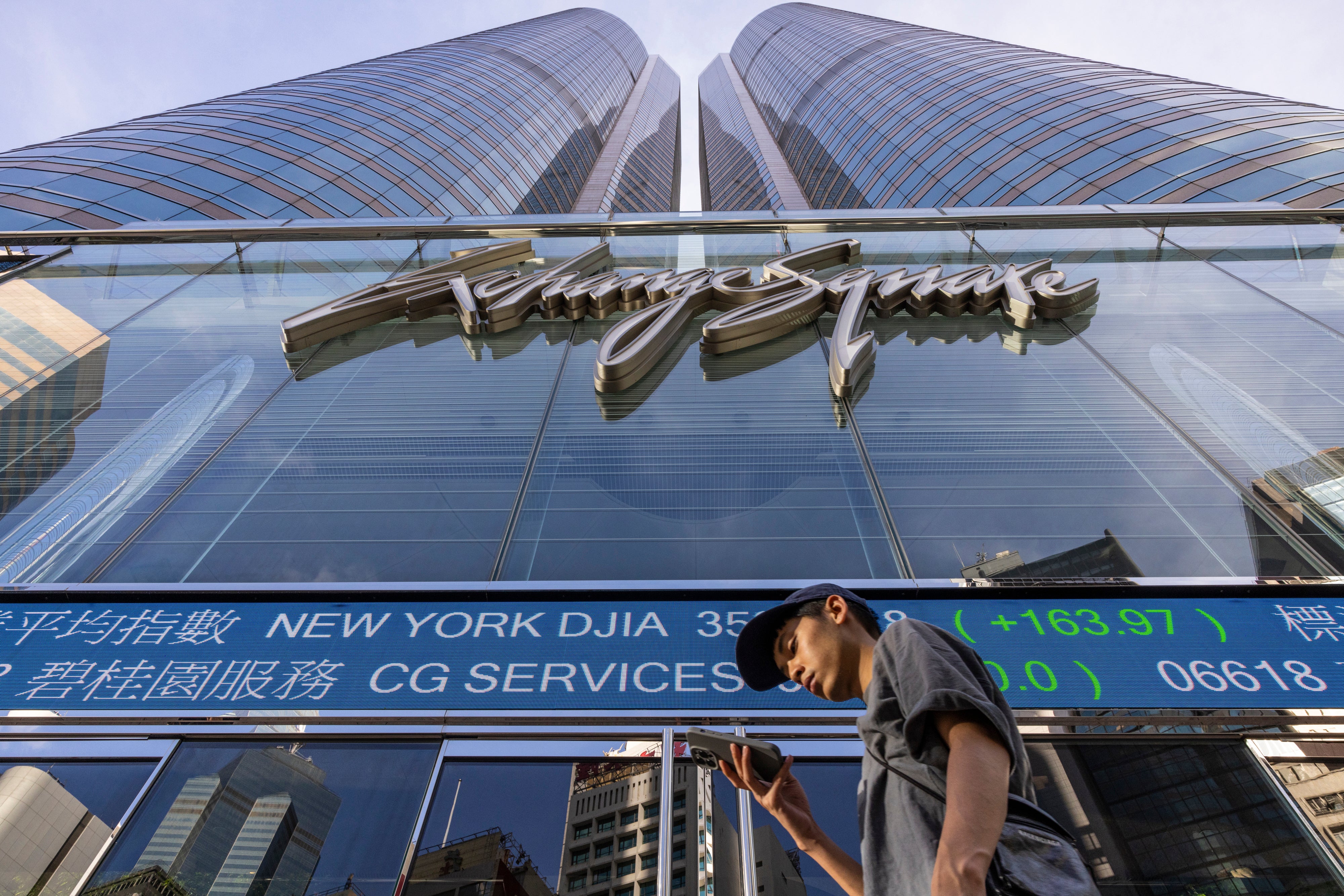Stock market today: Asian markets sink, with Hong Kong down almost 3% on selling of property stocks
Asian markets have declined following a mixed session on Wall Street, where buying was pressured by rising bond yields

Asian markets declined Tuesday following a mixed session on Wall Street, where buying was pressured by rising bond yields.
U.S. futures fell and oil prices also were lower.
Hong Kong’s Hang Seng dropped more than 3% as investors unloaded property shares. However, China Evergrande was up nearly 16%, resuming trading after its shares were suspended last week as the troubled real estate developer announced that its chairman was under investigation. Earlier in the session it's shares soared more than 60%.
By midday, the Hang Seng was down 3% at 17,278.37. Markets in mainland China and South Korea remained closed for holidays.
Tokyo's Nikkei 225 index fell 1.7% to 31,231.37, while Australia's S&P/ASX 200 skidded 1.3% to 6,943.40. India's Sensex declined 0.6% to 65,462.02.
Bangkok's SET was down 1.4% and Taiwan's Taiex fell 0.6%.
On Monday, the S&P 500 ended little changed at 4,288.39, while the Dow Jones Industrial Average slipped 0.2% to 33,433.35. The Nasdaq composite rose 0.7% to 13,307.77.
Oil-and-gas stocks sank as crude prices gave back some of the sharp gains made since the summer.
Early Tuesday, U.S. benchmark crude oil was down 71 cents at $88.11 per barrel in electronic trading on the New York Mercantile Exchange.
Prices have pulled back after charging higher from $70 in the summer. A barrel of U.S. crude fell $1.97 on Monday to settle at $88.82.
Brent crude, the international standard, gave up 94 cents to $89.76 per barrel. On Monday, Brent lost $1.49 to settle at $90.71 a barrel.
Lower oil prices weighed on energy stocks. Exxon Mobil fell 1.7% and Chevron lost 1.2%.
Stocks have given back 40% of their strong gains for the year since the end of July. The main reason is a growing recognition that high interest rates will persist for a while as the Federal Reserve tries to knock high inflation lower.
That in turn has pushed Treasury yields to their highest levels in more than a decade.
The yield on the 10-year Treasury rose Monday to 4.67% from 4.58% late Friday. It's near its highest level since 2007. High yields send investors toward bonds that are paying much more than in the past, which pulls dollars away from stocks and undercuts their prices.
Any relief rally from a compromise spending bill approved by Congress over the weekend, which has staved off a U.S. government shutdown for another few weeks, appeared muted under pressure from heavy selling of bonds, which pushed yields higher.
“So, investors were on the fence, carefully considering the relationship between economic growth and interest rates and what actions the Federal Reserve might take in response to these factors,” Stephen Innes of SPI Asset Management said in a commentary.
Stocks that pay high dividends with relatively steady businesses are squeezed because investors are more likely to switch between stocks and bonds. That puts a harsh spotlight on utility companies. PG&E dropped 5.6%, and Dominion Energy sank 5.3% for some of the sharpest losses in the S&P 500.
High interest rates also make borrowing more expensive for all kinds of companies, which can pressure their profits. High interest rates are designed to slow the overall economy and can cause disruptions in far-flung, unexpected corners of the economy.
The overall U.S. economy has so far been holding up, defying predictions that it would have fallen into a recession by now.
SmileDirectClub plunged 61.2% to 16 cents after the company that helps people straighten their teeth filed for Chapter 11 bankruptcy protection.
In currency dealings Tuesday, the dollar rose to 149.93 Japanese yen from 149.86 yen. The euro declined to $1.0462 from $1.0480.
The dollar has gained in value against many other currencies as U.S. interest rates have risen faster than those in many other countries. Higher interest rates can mean higher yields for investments.
Bookmark popover
Removed from bookmarks